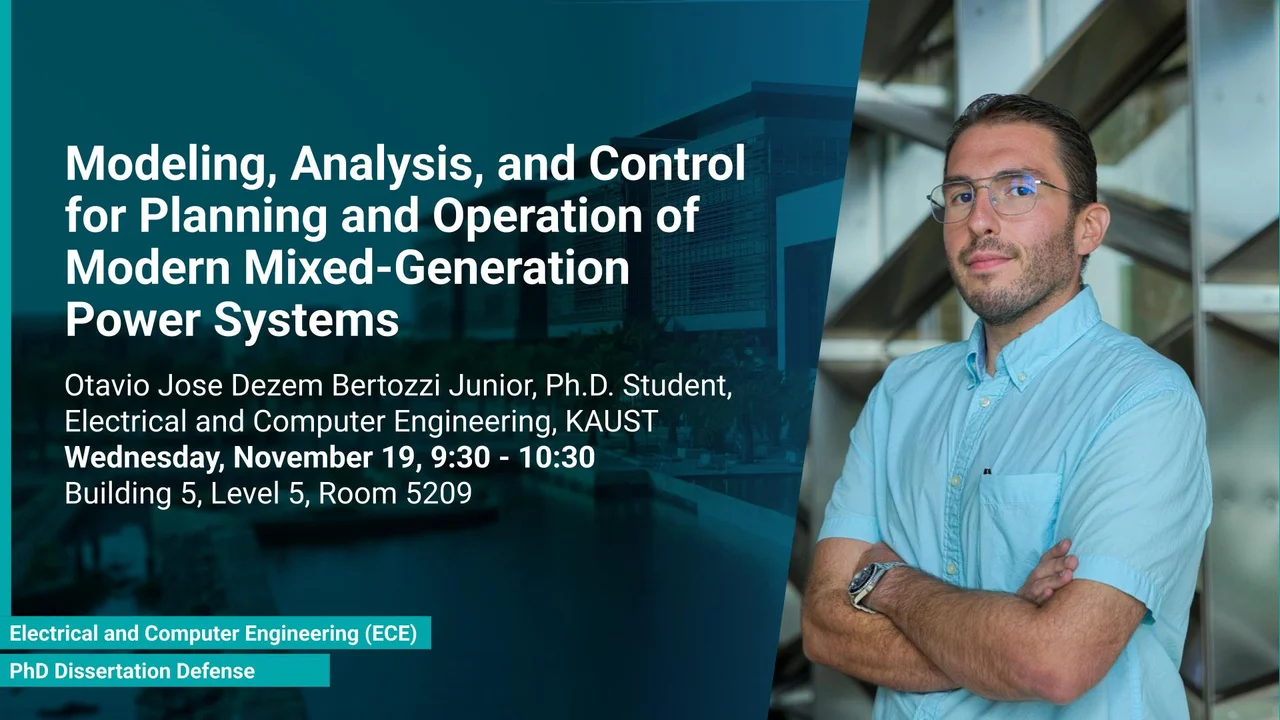
Modeling, Analysis, and Control for Planning and Operation of Modern Mixed-Generation Power Systems
This dissertation presents an interpretable framework for modeling, planning, and control of mixed-generation power systems, integrating ternary stability-aware planning, reinforcement learning-based control tuning, and data-driven stability forecasting to bridge analytical models with real-time operation in converter-dominated grids.
Overview
The global transition toward renewable, inverter-based generation is reshaping the fundamental dynamics of electric power systems. As synchronous machines are displaced by converter-interfaced resources, classical planning and control paradigms struggle to ensure system stability and reliability. This dissertation proposes an integrated framework for the modeling, analysis, and control of mixed-generation power systems comprising synchronous generators, grid-forming, and grid-following converters.
A ternary parameterization is introduced to represent generation mixes by capacity shares, enabling systematic scenario design, large-scale simulation campaigns, and visual stability mapping. Model-based insights support the development of hybrid data-driven predictors that identify feasible and stable operating regions from synthetic measurement data. Supplementary control schemes for point-to-point and multi-terminal HVDC systems are proposed to enhance damping and voltage support without modifying inner control loops. Furthermore, reinforcement learning agents are proposed to tune these controllers automatically, maximizing the volume of stable operating conditions within the ternary space of mixed-generation scenarios.
At the operational level, a dynamic recurrent adjacency memory network is developed for real-time stability assessment and forecasting using phasor measurement data. The framework demonstrates high accuracy and interpretability, providing early warnings of potential instability.
The methods proposed in this dissertation collectively bridge planning, operation, and control, offering scalable, stability-aware tools for secure transition toward converter-dominated grids.
Presenters
Brief Biography
Otavio Bertozzi received his B.Sc. in Electrical Engineering from UNESP, Brazil (2018), and his M.Sc. in Electrical and Computer Engineering from KAUST (2020), where he is currently completing his Ph.D. under the supervision of Prof. Shehab Ahmed. His research focuses on the modeling, analysis, and control of mixed-generation power systems, emphasizing stability in converter-dominated grids. His work spans the development of power system simulation models and the design of control solutions for grid-integrated power electronic systems.

